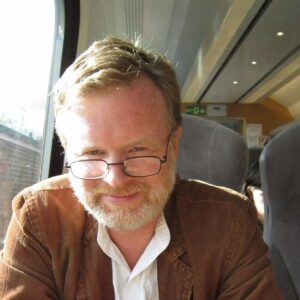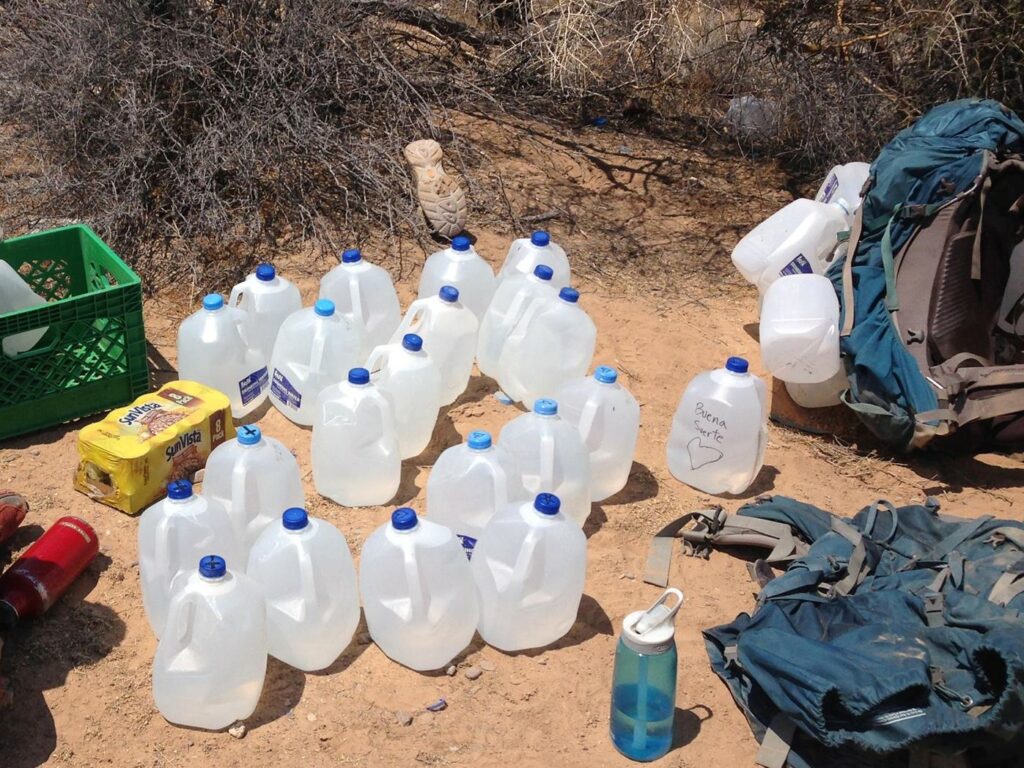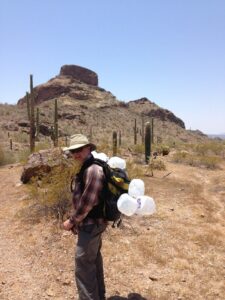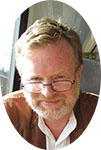
1. Can you tell us a little about your background and how you were first affected by/became aware of asylum seekers or displaced peoples?
I have worked with marginalized people, homeless folks and undocumented persons, most of my adult life. Back in 1988, my first wife and I spent a year in El Salvador doing human rights work during the civil war in that country. When we returned to North America, we opened a small settlement house in Hamilton, Ontario for refugees fleeing the conflicts in El Salvador and Guatemala, having crossed through the United States and now seeking political asylum in Canada. Having spent time in conflictive zones in Central America, we had some understanding of the persecutions they were fleeing from, and were able to help adjust to the Canadian community. Some of the mundane moments of culture shock are most memorable, like the first time that young children saw snow falling (“It’s like sand, but it’s cold!”), and then the gradual realization that the Canadian winter would be five months of unending cold, dark dreariness. Also teaching a mother how to shop at the supermarket and trying to explain to her how to choose between twelve equally shiny brands of toothpaste. Later we took in asylum-seekers from other troubled parts of the world: Lebanon, Sudan, Zaire, and came to understand just how much of the world is constantly in violent flux through the stories of the people who came through our house.
Later we moved back to the U.S., and I became a nurse practitioner, working to bring health care to homeless people in Boston. Many of my patients have been undocumented, living in streets and shelters, wary of accessing basic health care because of their tenuous status. We often have to find creative ways to meet their health care needs.

Over the past five summers, I have spent some time down at the Mexico/Arizona border, working with a group called No More Deaths, which provides medical and humanitarian aid for migrants crossing into the U.S. through very remote and dangerous stretches of the Sonoran desert, where there are often no safe and secure sources of water for many miles, and people often die from dehydration or exposure to searing heat in summer and intense cold in winter. We place water and food out on trails where migrants pass through, and provide first aid to people we encounter in the desert. Over the past five years I have seen the increased militarization of the Border Patrol, as agents use more aggressive and sophisticated technology (helicopters, ground motion sensors, night vision goggles) to hunt migrants down and detain them. I have seen Border Patrol agents pour our jugs of water out into the dust on a day when the temperature soared to 115 degrees. It is difficult to witness such institutional cruelty.

2. Have you yourself endured such a displacement from your home? If so, can you tell us a little about what prompted this movement, and what the experience was like for you?
I have never been involuntarily displaced from my home. I did live briefly, for several months, in Canada without documentation of landed immigrant status, before my wife and I got married. I’m white, and a fluent English-speaker, the culture in Ontario was very similar to the norms that I grew up with in the U.S., so I didn’t live in daily fear of being discovered and expelled. There were moments, such as opening a bank account, and witnessing a serious traffic accident and being questioned as a bystander by police, where I had to very careful not to reveal my lack of status. I can’t imagine what it would be like for a person of color, with very different language and cultural skills, to navigate a North American community without papers.
3. If you have worked with displaced people, can you tell us about a particular person, event or interaction that was most memorable?
There are so many stories, but there is one in particular from our days in Ontario. We got a phone call one evening from a refugee center in Toronto, saying that they had a family of seven from Eritrea, that was in immediate danger of being deported by Immigration Canada, as their case had been denied. The problem was that in 1992, Eritrea was a fledgling state, recently claiming independence from Ethiopia and not yet recognized by Canada, and there was minimal understanding of the complex political turmoil unfolding in that part of East Africa. So we had to take the family in to our community, an hour or so away from Toronto, and keep them hidden from the government, in sanctuary, for two long years while their asylum claim was appealed directly to the Canadian prime minister. They were a wonderful warm family, a couple with five children ages five to thirteen, and they were incredibly patient with us, each day their lives in the balance, as their appeal wound its tortuous way to the prime minister. The father was a severe diabetic, fully dependent on insulin, and had he been deported, he would have died within days without medical attention. We were able to arrange consistent medical care for him, and enroll the children clandestinely in a parochial school. I will never forget the day we received word from the legal team in Toronto that their claim had been accepted. We sat down with the parents, and I asked the father to tell me his real name (we knew them all this time by pseudonyms, for their security), and he asked me “Why do you want to know this now?” I said, “Because now you will be able to stay here, and I can call you by your real name.” And the couple both leaped straight up into the air, ululating and praising Allah at the top of their lungs (they were devout Muslims). I have never seen such joy.
4. Can you tell us about any current projects upon which you are now working?

I remain involved with No More Deaths, the humanitarian aid organization on Arizona border that I mentioned above. My son has become involved with the group, more so than I have now, and it gives me deep hope that he and his contemporaries are taking up this work with deep determination.
I have been writing about the situation on the border, and I hope to put together a collection of poems about harsh abuses taking place in this stark and beautiful land. The two poems I have in the We Refugees anthology are from that work.
5. In many countries, including the US, Australia, and UK there is often a stigma against and negative feeling toward refugees. What do you want people to know about refugees?
I would like people to know that the refugees and migrants I have encountered include some of the finest people I know. It takes a tremendous amount of courage, ingenuity and perseverance to leave behind everything you know and embark on an unknown journey filled with untold danger, to risk everything for an incomprehensible future. The people I know who have made it to somewhere remain brave, intelligent, and hardworking, motivated to start a new life, grateful the opportunities they have arrived at. They are rarely a liability in their new home. My life has always been enriched by the refugees I have known.
6. How does it make you feel when people in the West characterize asylum-seekers, refugees and immigrants as dangerous, causing them to want to close their borders?
I am devastated by the present characterization of asylum-seekers, particularly in my own country, as being dangerous and unworthy of consideration for asylum. When vulnerable people around the world are in crisis, we are all morally bound to respond to them, as urgently and completely as we are able. And frankly, the United States government’s present response to humanitarian crises in Latin America, Africa and the Middle East is disgraceful. Our immigration quotas are at an all time low, just when movement of refugees are surging around the globe. It’s incomprehensible to me that a prosperous nation that is so largely made up of immigrants could be so callous to the sufferings of the present generation of people in need of asylum. It goes against everything I believe.
6. What is next for you?
Well, I need to step up and do more work with local immigration advocacy groups who are trying to hold back to the repressive crackdown and deportations that are being directed by our present administration in the U.S. As long as my legs hold up, I hope to continue spending a week or two each summer hauling water out into the Arizona desert with No More Deaths, to try and preserve lives in that harsh landscape. And in my regular work as a nurse practitioner, to treat and advocate for my patients as best I can, regardless of their immigration status.

Robbie Gamble works as a nurse practitioner caring for homeless people in Boston. He spends time every summer on the Arizona/Mexico border, providing medical and material support to migrants who are passing through a remote and dangerous section of the Sonoran Desert. His poems and essays have appeared in Scoundrel Time, Writers Resist, Solstice, Poet Lore, and Carve, among others.